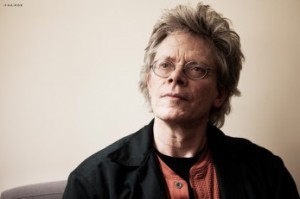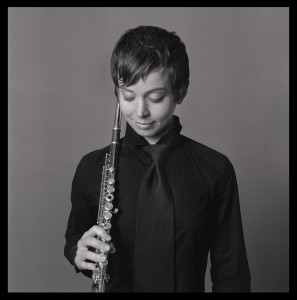This year’s lecture with Roger Scruton was a wonderful success. We were turning away people at the door! Please check back with us next week for a full write up of the event and news of what is to come. In the mean time, for those who were unable to attend, video of the lecture is now available. Watch in good health.
[youtube]https://youtu.be/THfx1wlREU8[/youtube]2015 Lecture: Roger Scruton, with Greil Marcus
The speaker at this fall’s Lloyd Old and Constance Old Lecture is philosopher Roger Scruton. Scruton’s lecture will be followed by a response and interview with music journalist and current visiting professor Greil Marcus.
“No time to rejoice for those who walk among noise and deny the voice”
Ash Wednesday
T. S. Eliot
Walking Among Noise
Tonality, Atonality, and Where We Go From Here
Friday, October 16, 2015, 7:30pm
Elebash Recital Hall
The Graduate Center, CUNY
365 Fifth Ave, New York NY 10016
Taking a cue from Eliot’s famous line, Walking among Noise: Tonality, Atonality, and Where We Go from Here will discuss the exceptional role of beauty, art and music in our everyday experience. The talk will address what tonality is and why it was declared a dead language. It asks, what are the lessons learned from the avant-garde, how can composers of “serious” music reconnect to the concert-going audience, why are symphony audiences declining, and finally, how can composers today connect with popular culture and the music that appeals to the young?
The program will also feature a musical interlude by members of the Perspectives Ensemble, who will be performing selections from string quartets by Rochberg, Webern, and Tippett.
Admission is free, but reservations are required.
About our speakers:
Roger Scruton:
Prof. Scruton is a writer, philosopher and public commentator. He has specialized in aesthetics with particular attention to music and architecture. He engages in contemporary political and cultural debates from the standpoint of a conservative thinker and is well known as a powerful polemicist. He has written widely in the press on political and cultural issues. He is a fellow of the Royal Society of Literature and a fellow of the British Academy.
Scruton graduated from Cambridge University in 1965, spent two years abroad and then pursued an academic career in philosophy, first in Cambridge, and then in London, until 1990 when he took a year’s leave of absence to work for an educational charity in Czechoslovakia. (This charity grew from the ‘underground university’ which colleagues and Scruton had established in the last decade of communism. His contacts with the countries of the old Eastern Bloc remain strong.) Scruton then taught part-time at Boston University Massachusetts until the end of 1994, while simultaneously building a public affairs consultancy in Eastern Europe. Since then Scruton has been a free-lance writer and consultant. He is currently senior fellow at the Ethics and Public Policy Center in Washington, D.C., where he is pursuing projects related to the need for a new urbanism and the cultural impact of neuroscience. In 1996, Scruton married his wife, Sophie, and they have two children, Sam, age 17, and Lucy, age 15.
“There are few more valuable thinkers in Britain – or indeed, the world – today. His vilification and rejection by the academic establishment is disgraceful. In comparison with him, most of his critics are intellectual pygmies. Both left and right should be grateful to have such a man to sharpen and define the issues. And philosophers should be grateful that he has placed their subject at the very centre of current affairs. Perhaps Scruton’s greatest contribution is his living demonstration of the truth that without philosophy we are nothing.” Bryan Appleyard, The Sunday Times
Greil Marcus:
Marcus is a noted music critic and journalist whose work focuses on American popular music and its place in society. He is the author of Lipstick Traces: A Secret History of the 20th Century and The Old, Weird America: The World of Bob Dylan’s Basement Tapes, and he has written for Rolling Stone, Creem, and The Village Voice. For the fall 2015 semester, he will be a visiting professor at the Graduate Center.
Strings Attached: A conversation between David Harrington and Brooke Gladstone (VIDEO)
On October 22, 2014, Kronos Quartet’s founder David Harrington joined with NPR’s Brooke Gladstone for a stimulating conversation about Kronos’s contributions to the modern string quartet.
Harrington and Gladstone discussed Kronos’s origins in depth, including Harrington’s earliest influences and the state of the contemporary chamber music/quartet scene at the time Kronos was founded in 1973, as well as the legacy that Harrington and Kronos have left to the string quartet in the 21st century.
The talk was a great success and filled with insightful anecdotes, but the show was stolen by our young musical guests, two quartets from the Kaufman Center’s Face the Music project—a true testament, indeed, to the ever growing contribution that Kronos has made not only to the contemporary string quartet repertoire, but to modern music education. Harrington, like most musicians, started young, but he notes that comprehensive, public arts educations for teens were a thing unheard of in his own youth. Today, there are public youth arts programs around the country, just one of which is Face the Music, with whom Harrington and Kronos have a mentoring relationship.
Our first quartet, the Pannonia Quartet, performed the work from which they took their name, Pannonia Boundless (Vrebalov), which was originally commissioned by Kronos Quartet. The second group, Quartet: This Side Up, performed a work by their own (13 year old!) 1st violinist, Paris Lavidis. Bravo, everyone!
Please enjoy the talk, and quartets’s great performances, below:
[youtube]https://youtu.be/yzx_v53KX2M[/youtube]An audio-only recording is also available here.
See you next year!
Thanks to everyone who helped make our last event, Strings Attached, a conversation with David Harrington and Brooke Gladstone, a great success! If you were unable to attend or would like to revisit the talk or performances, you can listen here (video forthcoming).
Stay tuned for news of the next, fall 2015 event, about which we are eagerly brainstorming!
Kronos Quartet with Laurie Anderson at BAM
The Kronos Quartet–whose founding member, David Harrington, will soon be appearing in our Music in 21st Century Society lecture series–recently concluded a week-long run at the Brooklyn Academy of Music, performing Landfall, a new work inspired by the devastation of Hurricane Sandy, with composer Laurie Anderson. The multi-media work is a 100 minute song cycle (“stories with tempos”) for a singer with string quartet and electronics, which are comprised of both pre-recorded sounds and live processing of the players. Behind the musicians were projected images, synced at a climactic moment to the rhythm of the violinists.
In the work, Anderson recalls seeing her basement flooded, where a lifetime of mementos floated in the filthy water: “How beautiful. How magic. And how catastrophic.” Using this experience of loss during the hurricane as a springboard, Anderson journeys through our larger experience of loss as citizens of the planet–not merely human, individually felt loss, but biological, environmental loss, as in a passage where Anderson recites a list of species that have gone extinct. From the destruction of the nests we have built for ourselves to the destruction of the natural world, what is the price of our tenure on this planet?
The work seizes a striking opportunity to take a moment from local New York life and use music, the so-called universal language, to relate it to a global concern. Kronos’ David Harrington will be joining us at the Graduate Center on October 22 to discuss his part in this dialogue between modern life and modern art. Please join us then for our conversation not only about Kronos’ contributions to the string quartet, but the string quartet’s continuing role in contemporary classical.
A Conversation with David Harrington
Wednesday, October 22, 2014
Innovative violinist David Harrington, founder of the Kronos Quartet, will be speaking about his music and career at the Graduate Center this coming Fall. This event will also feature a live performance of music selected by Harrington.
Harrington was inspired to form Kronos in 1973 after hearing a performance of Black Angels, an avant-garde piece by George Crumb. The new group quickly expanded into unconventional territory, performing renditions of songs by jazz artists, such as Ornette Coleman and Thelonious Monk, rock artists like Jimi Hendrix, as well as repertoire from past masters and contemporary composers. The group has worked closely with several prominent composers, including Terry Riley, Henryk Mikolaj Górecki, and Philip Glass, and has received numerous awards for their recordings and performances.
Current News for Music in 21st-Century Society
October 25, 2013
The Creative Pulse with Philip Glass was a successful event that generated thoughtful discussion about continuing creativity in music and arts through interdisciplinarity and collaboration. The streaming video is available here.
[youtube]https://www.youtube.com/watch?v=VoOQkhXvtDc[/youtube]On October 16, the Barry S. Brook Center and the Ph.D. and D.M.A. Program in Music at the Graduate Center honored the late Charles Rosen with a concert and reception. Rosen was the inaugural lecturer for Music in 21st-Century Society.
The second annual lecturer, Paul Griffiths, has published a new fiction book: The Tilted Cup: Noh Stories. Visit the publisher Sylph Editions for more information.
Look forward to Fall 2014 for the next Music in 21st-Century Society lecture.
Claire Chase to Perform and Moderate “A Conversation with Philip Glass”
August 16, 2013:
Claire Chase, a flute soloist, artistic collaborator, and art entrepreneur will be the moderator for “The Creative Pulse: A Conversation with Philip Glass” on October 15, 2013 at the Graduate Center’s Elebash Recital Hall. Chase will perform one of Glass’ works for flute and continue the musical discussion by leading an audience question-and-answer session.
“the young star of the modern flute” —The New Yorker “as Ms. Chase fluttered, popped, swooped and sang, you felt that the instrument’s full potential had been achieved.” — The New York Times
Claire Chase is a Brooklyn-based soloist, collaborative artist, and art entrepreneur, and a 2012 MacArthur Fellow. Over the past decade as a soloist, Chase has given world-premieres of over 100 new works for flute, many composed for her. She has performed in in diverse venues including (Le) Poisson Rouge, Miller Theatre, and Lincoln Center for the Performing Arts in New York City, the John F. Kennedy Center for the Performing Arts in Washington D.C., the Isabella Stewart Gardner Museum in Boston, the Sibelius Academy in Helsinki, the Palacio de Bellas Artes in Mexico City, and other venues throughout Europe. Additionally, Chase is the founder and Artistic Director of the International Contemporary Ensemble (ICE), which she formed in 2001 with the goal of creating the United States’ first large-scale chamber ensemble dedicated to new and experimental music. ICE has given more than 500 world premiere performances across the world, and has rapidly established itself as one of the leading groups of its generation as well as one of the most innovative artist-driven new nonprofit business models in the field.
The Creative Pulse: A Conversation with Philip Glass is the Fall 2013 Lloyd Old and Constance Old Lecture.
Video Available for Charles Rosen’s Inaugural Lecture
July 19, 2013: The inaugural lecture “The Challenges of Modernist Music” delivered by the late Charles Rosen is now available in streaming video, here.
[youtube]https://www.youtube.com/watch?v=geyRVsZqyyc[/youtube]Paul Griffiths’ “We Are What We Hear” Video Now Available
July 19, 2013: Paul Griffiths’ lecture and discussion “We Are What We Hear” is now ready to view. The entire lecture, musical interlude, and discussion with Jeff Milarsky is available through streaming video here.
[youtube]https://www.youtube.com/watch?v=WFLy_cEhZX4&list=PL7WiyeP3N1nVC8wc61YcuYnYBHrueqVIx&index=1[/youtube]


